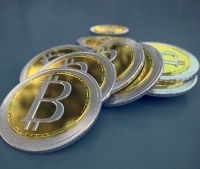Making Heads or Tails Out of Digital Currency

Whether you’re talking about virtual currency, digital currency, or virtual money (there is a difference), there are numerous groups touting their own versions of the future of online financial transactions. And paper money will one day go the way of the dinosaur and the incandescent light bulb.
Facebook may have quickly abandoned its virtual money venture, Credits, but they’re in the minority of organizations that haven’t found success early in the game. Mobile Marketing recently reported that in only the three months since the launch of Amazon Coins, “almost half of developers who implemented the virtual currency for their Kindle Fire apps saw weekly revenue jump by more than 50 percent.”
It’s not surprising that consumers would be quick to try out anything new online, but news that “spending through Amazon Coins outpaced cash following the launch” is pretty amazing.
And then there are bitcoins, the currency that continues to make headlines both praising and panning the virtual sensation.
The New York Times points out that while bitcoins offer the advantage of not requiring carriers to “have to go through a financial situation, which means no fees and no one tracking your spending habits,” the currency is “insecure” and “as hackable as any other computer-based system.”
Still, with a more than 700 percent appreciation value in the last year alone, it’s hard to not give bitcoins a shot, like Ars Technica does in the video below.
Even after the somewhat confusing setup of Butterfly Labs’ bitcoin miner and the more confusing exchanging of bitcoins for physical US currency, Ars Technica’s Lee Hutchinson manages to make a pretty impressive profit.
But this leads Hutchinson to wonder why “if it's so profitable, why on earth is Butterfly Labs selling these devices? Why not rent a warehouse, fill it with miners, and make infinity bitcoins?” The author then answers his own question by pointing out the obvious: Even with the outrageous rise that bitcoins have had, they “don’t necessarily hold value.”
My stepfather, when questioning why I was spending so much money on baseball cards when I was younger, would always say, “You know, they’re only worth what people are willing to pay for them.”
My mistake was not selling those cards back when they were actually worth something.
Those looking to invest in bitcoins or any other digital currency may want to purchase and flip quickly, not wait for what Lee Hutchinson claims is a future that is “utterly impossible to predict.”

